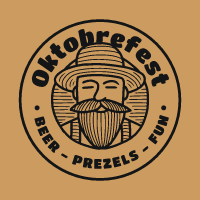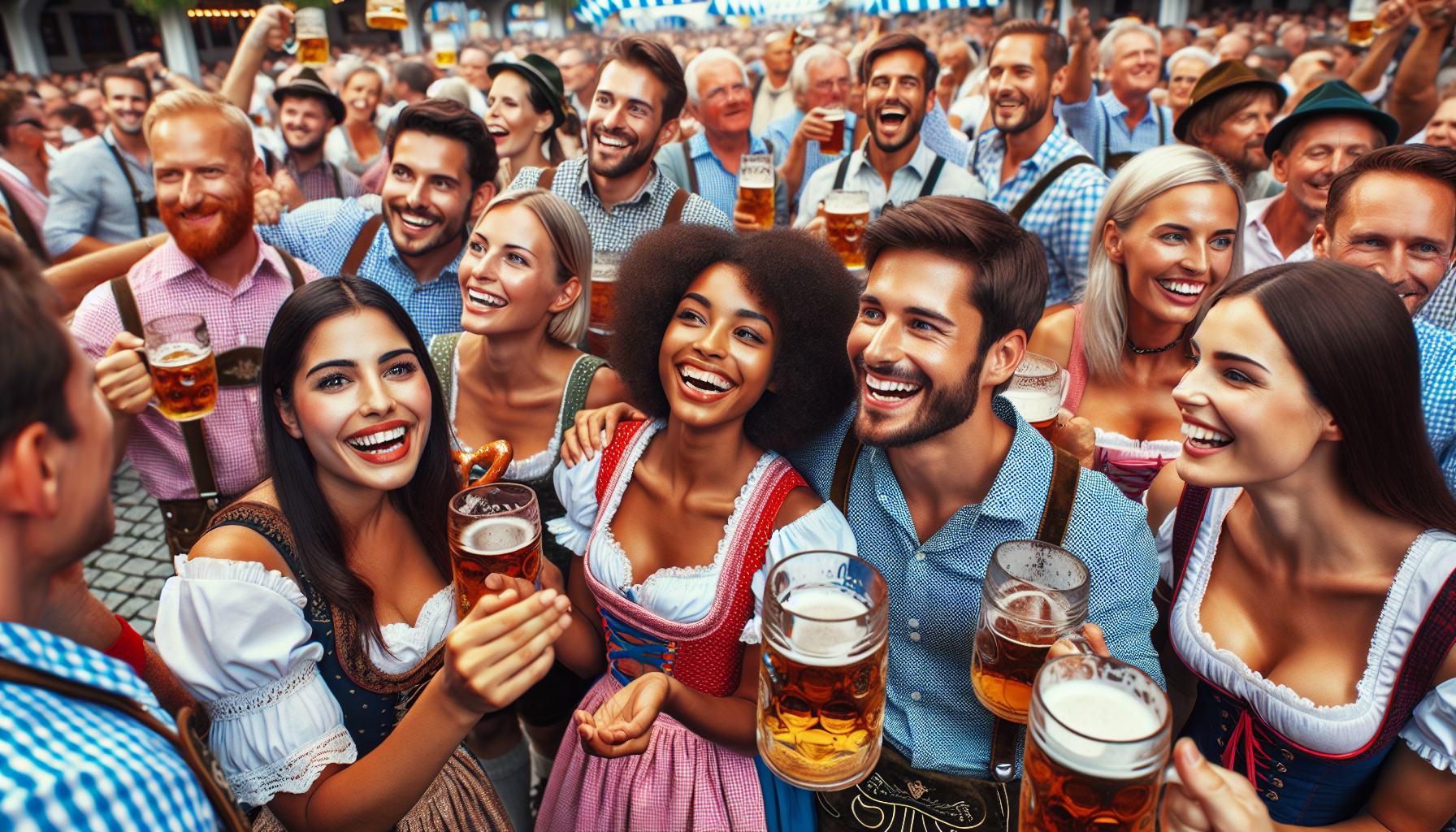Oktoberfest: From Royal Wedding to Worldwide Celebration
Hallo, Freunde! It’s Fritz from the beautiful village of Gmunden, right in the heart of Bavaria. Today, we’re diving into a topic that’s close to my heart: Oktoberfest. Grab a stein of frothy beer, don your best dirndl or lederhosen, and let’s embark on a joyous ride through history, culture, and the global phenomenon that is Oktoberfest!
The Origins: A Royal Celebration
Oktoberfest wasn’t always the massive party we know today. Its roots trace back to 1810, when Munich hosted a massive celebration for the royal wedding of King Ludwig I of Bavaria and Princess Therese of Saxony-Hildburghausen. It was a grand event, featuring a spectacular horse race and a lavish feast, which captured the hearts and minds of everyone in attendance. The event was so successful that it was repeated the following year, laying the foundation for an annual tradition.
From Agricultural Fair to Beer Tents
In the early years, Oktoberfest was more of a folk festival. It featured agriculture fairs where local farmers showcased their harvests and livestock. Over time, carnival booths, games, and rides were added to the mix, turning it into a family-friendly event. However, the turning point came at the end of the 19th century, when the horse races were phased out and brewery-sponsored beer tents took center stage. Can you imagine Oktoberfest without beer? Neither can I!
The Modern Oktoberfest: 16 Days of Bavarian Fun
Today, Oktoberfest is a 16-day celebration that kicks off in mid-September and wraps up on the first Sunday of October. It’s a grandiose affair, featuring traditional Bavarian music, parades, open-air performances, vendor tents, and of course, carnival rides that delight young and old alike. One of the highlights of the festival is the opening ceremony, where the mayor of Munich taps the first keg with as few strikes of the hammer as possible, officially declaring the festival open with a resounding “O’zapft is!” (It’s tapped!).
The Quintessential Experience: Beer, Music, and Outfits
Ah, the beer! Oktoberfest is known for its rich, frothy brews exclusively served by Munich’s original six breweries: Augustiner, Hacker-Pschorr, Hofbräu, Löwenbräu, Paulaner, and Spaten. These breweries have been serving up liquid gold for centuries, each with its own unique flavor profile. And let’s not forget the music! The air is filled with the delightful sounds of oompah bands playing traditional tunes that make you want to dance and sing along. It’s a feast for all senses!
Munich to the World: Oktoberfest’s Global Phenomenon
While Oktoberfest will always be synonymous with Munich, its spirit has traveled far and wide. From Cincinnati’s Zinzinnati to Kitchener-Waterloo’s Canadian Bavarian celebration, cities across the globe have embraced this Bavarian tradition, hosting their own versions of Oktoberfest. It’s fascinating to see how the heartwarming customs, delectable food, and vibrant music bring people together, no matter where they are in the world.
The Culinary Delights
Oh, the food! Imagine biting into a juicy bratwurst smothered in mustard, savoring a plate of crispy pork knuckle, or indulging in a pretzel the size of your head. Oktoberfest is a gastronomic paradise, offering everything from savory sausages to sweet treats like apple strudel. Pair these dishes with your favorite beer, and you’ve got a match made in Bavarian heaven.
Traditional Attire: Dirndls and Lederhosen
One of the most charming aspects of Oktoberfest is the traditional attire. Ladies don their colorful dirndls, complete with bodices and aprons, while gents strut their stuff in leather lederhosen. These outfits are not just for show; they reflect the rich cultural heritage of Bavaria and add an extra layer of festivity to the event. So, if you’re planning to attend an Oktoberfest celebration, make sure to dress the part!
The Parades and Performances
The parades at Oktoberfest are nothing short of spectacular. Imagine floats adorned with flowers, traditional costumes from different regions of Bavaria, and brass bands playing lively tunes. It’s a sight to behold! The parades are a tribute to Bavaria’s rich cultural traditions and a celebration of its history. You can also enjoy open-air performances that range from folk dancing to theatrical plays, adding to the festival’s vibrant atmosphere.
Oktoberfest Today: A Mecca for Celebrants
With all its grandeur, Oktoberfest attracts millions – yes, millions – of visitors each year. People from every corner of the globe flock to Munich to partake in the festivities. And why not? Oktoberfest offers a unique opportunity to immerse yourself in Bavarian culture, enjoy world-class beer, and make unforgettable memories with friends old and new.
Tips for First-Time Visitors
If you’re planning to visit Oktoberfest for the first time, here are a few tips from a seasoned Bavarian:
- Arrive Early: The beer tents fill up quickly, especially on weekends. Arriving early ensures you get a good spot.
- Dress Appropriately: Embrace the tradition by wearing a dirndl or lederhosen. It’s part of the fun!
- Stay Hydrated: With all that beer, it’s easy to get dehydrated. Drink water in between your steins.
- Try the Food: Don’t miss out on the culinary delights – they’re an integral part of the experience.
- Respect the Traditions: Oktoberfest has a rich history and cultural significance. Show respect for local customs and traditions.
Conclusion: Prost!
So there you have it, folks! Oktoberfest is more than just a festival; it’s a celebration of Bavarian culture that has captivated the world. From its royal beginnings to its global presence, Oktoberfest offers an experience like no other. Whether you’re in Munich or celebrating at a local event, raise your stein and toast to this extraordinary tradition. Prost!
If you’re as excited about Oktoberfest as I am, check out these links to delve deeper into its rich history and traditions:


Leave a Reply